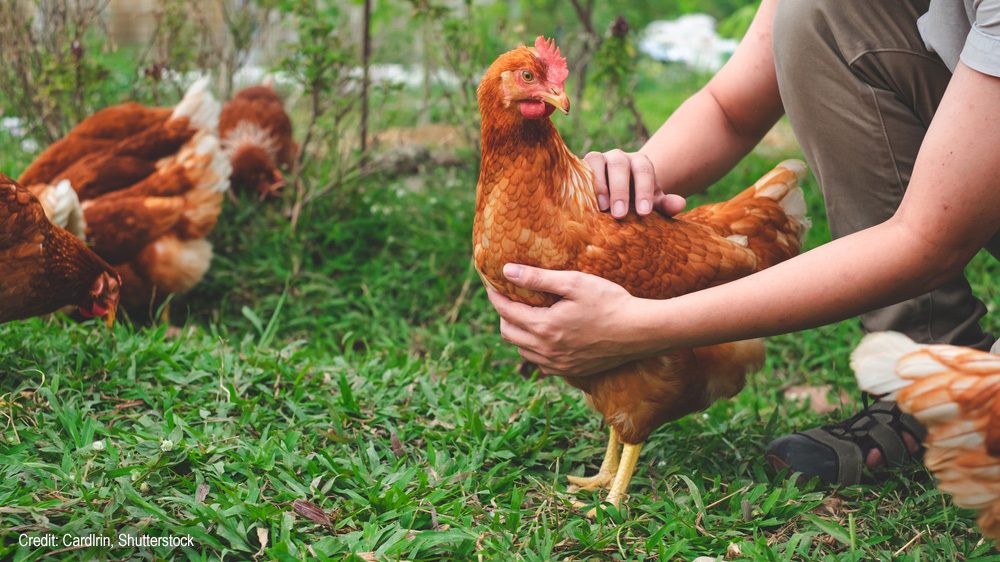
Oct 10, 2024 Ending Cage Farming in the EU: The Fight for Animal Welfare
In 2014, Compassion in World Farming (CIWF) launched a campaign entitled “End the Cage Age” to end the use of cages for farmed animals in the European Union (EU). Toward the end of 2018, CIWF registered a European Citizens’ Initiative (ECI) with the European Commission entitled “End the Cage Age.” The “Citizens’ Initiative” process allows ordinary citizens in any EU country to petition the European Commission to develop and pass legislation on a specific topic. The “End the Cage Age” Citizen’s Initiative was accepted (registered) on September 11, 2018, and the collection of the required one million signatures from EU citizens who supported the Initiative began.
Over the next twelve months, CIWF and its partners around the EU collected 1,397,113 valid statements of support (signatures) from EU citizens. They reached the support threshold in 18 EU member states (the threshold number is required to be met in at least seven member states). The ECI organizers met with European Commission officials on October 30, 2020. This meeting was followed by a public hearing in the European Parliament on April 15, 2021, and a formal debate in the European Parliament on June 10, 2021. The European Parliament expressed its support for the initiative in a Resolution adopted on the same day.
On June 30, 2021, the Commission formally replied to the End the Cage Age Initiative, noting that the initiative was the sixth ECI to have reached the required numerical thresholds. The Commission’s response also stated that responding to the demand for more ethical and sustainable farming systems is a high priority. The Commission stated it intended to adopt, by the end of 2023, a legislative proposal to phase out and ultimately prohibit the use of cage systems for all animals listed in the Initiative – namely, laying hens, broiler chickens, geese, ducks, rabbits, sows in farrowing crates, sows in stalls, and calves kept in individual pens.
The required formal response to the ECI from the Commission also noted as follows:
- EU legislation on animal welfare has evolved and expanded its coverage since the first legislation was adopted in 1974.
- Legislation passed in 1999 prohibited barren battery cages for laying hens (today, laying hens may be kept in enriched cages that allow hens to perch and scratch on the ground).
- Since 2013, sows must be kept in groups for four weeks after mating or insemination and up to one week before the expected farrowing time.
- Since 2007, calves cannot be confined in an individual pen after reaching eight weeks of age.
The Commission’s response also noted relevant legislation in individual member states that addressed the issue of ending the use of cages for animals. For instance, it is already illegal in Austria, Germany, and the Netherlands to cage rabbits raised for meat, and about 60% of laying hens in the European Union are currently in cage-free housing. The European Food Safety Authority (EFSA), the Commission’s main scientific advisor on animal welfare, has also published numerous reports on farm animal welfare and will continue to explore the economic, food safety, and animal welfare implications of cage-free systems.
The proposed EU initiatives to end cages were warmly welcomed by animal advocates. However, farming interests started to push back against phasing out cages for farmed animals. Eventually, pressure from the agricultural lobby led to the EU abandoning its commitment to introduce legislation for cage-free farming, despite widespread public support for such a measure. For example, a special Eurobarometer poll on attitudes to animal welfare among European citizens reported that 89% of 26,376 respondents across the EU agreed that farmed animals should not be kept in individual cages. Additionally, 60% of the respondents said they would be willing to pay more for products from animals raised in animal-friendly systems.
On March 18, 2024, Compassion in World Farming filed a lawsuit against the European Commission. According to a report in Forbes Magazine, this is the first time the Commission has been sued for failing to implement a successful ECI (European Citizens’ Initiative).
Ursula von der Leyen, the President of the European Commission, took action to address the political fallout of the Commission’s decision to shelve proposed legislation to end caging for farmed animals. In September 2023, she announced the Commission’s plan to launch a “Strategic Dialogue” on the future of EU agriculture. In late January 2024, twenty-nine members convened in Brussels under the chairmanship of Peter Strohschneider, a Medieval scholar from Germany. Philip Lymbery, President of CIWF and the Eurogroup for Animals, was the sole animal welfare representative among the dialogue group. He recently commented that the task before the Dialogue Group appeared to be a “mission impossible.” However, under the open and expert chairmanship of Professor Peter Strohschneider, after eight months of intense discussions, what seemed impossible became possible. A consensus was reached, and a final report was delivered to Ursula von der Leyen on September 4, 2024, with clear recommendations on a way forward that were accepted by the diverse interests represented in the dialogue group.
The consensus reached included an agreement to phase out caged animal farming, with full compensation for the farmers during the transition. The group also agreed to update animal welfare legislation in the EU by 2026 and prioritize high animal welfare standards in the transition to sustainable agri-food systems. This should be supported by public funding, including the EU’s agricultural subsidy system, the Common Agricultural Policy.
Lymbery commented on the lessons he learned from his experience in the dialogue group. He stated that “walking in someone else’s shoes . . . can open up surprising new perspectives. . . [and that one does not need to change one’s goals but the process can] reveal surprising new ways of achieving them.” Ultimately, if such dialogue allows one to “find that triple win sweet spot that benefits people, animals, and the planet, then that’s priceless.”


